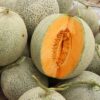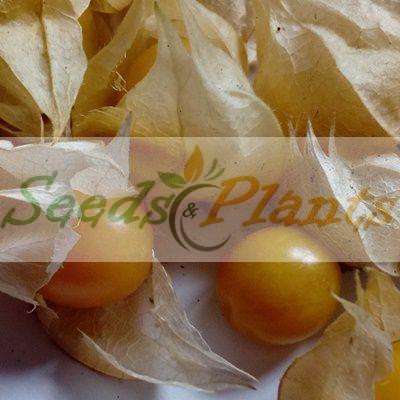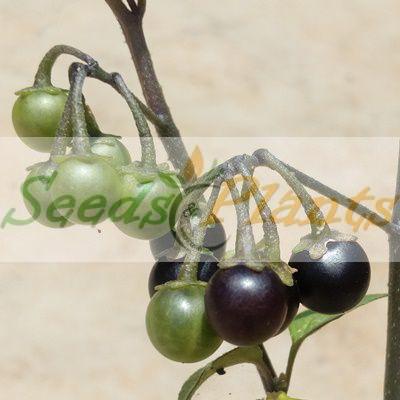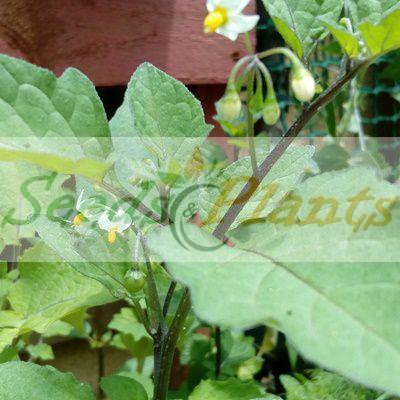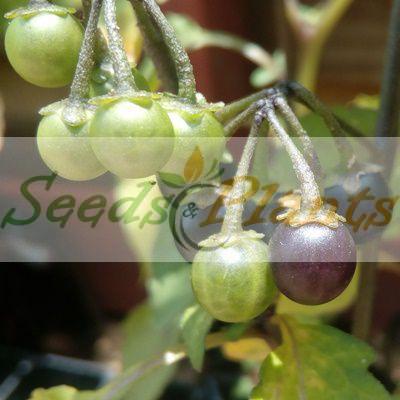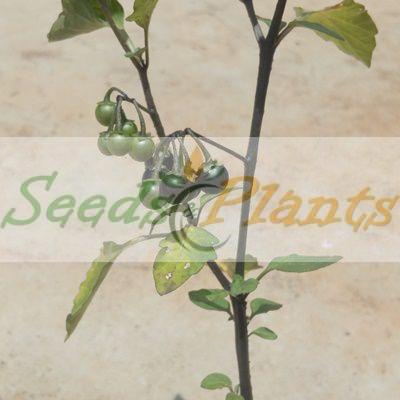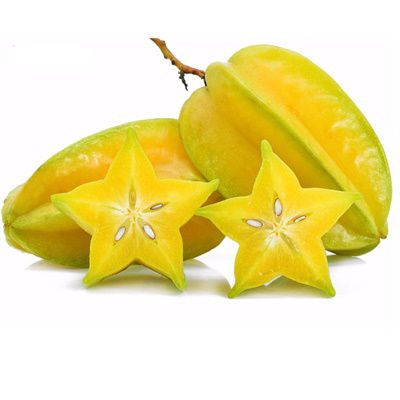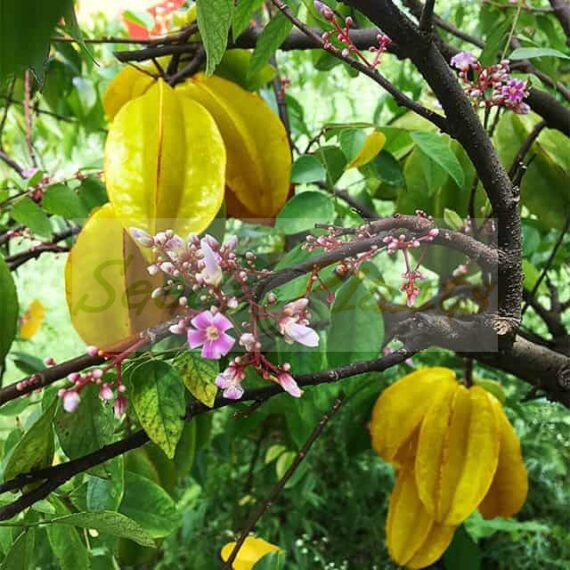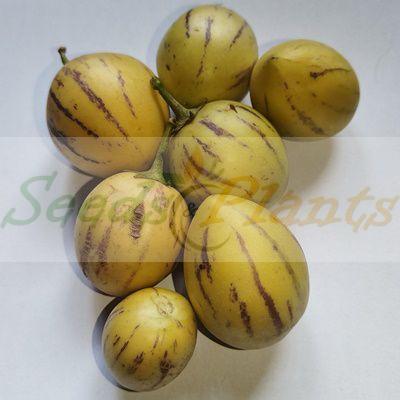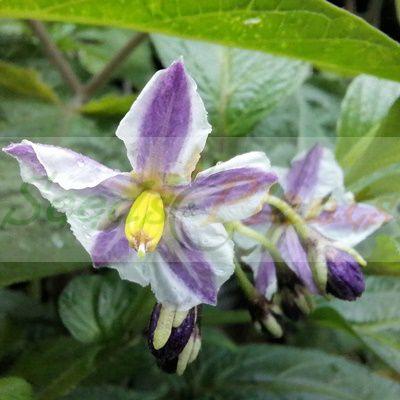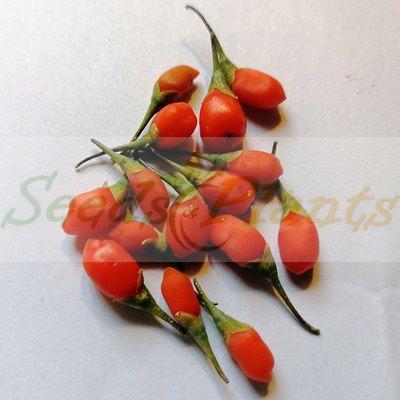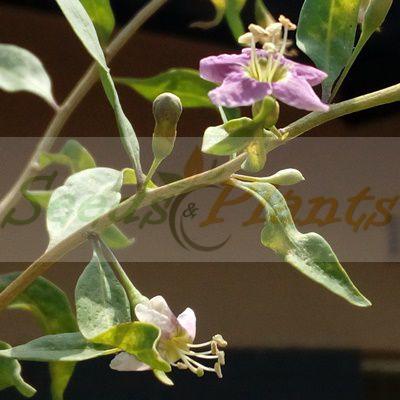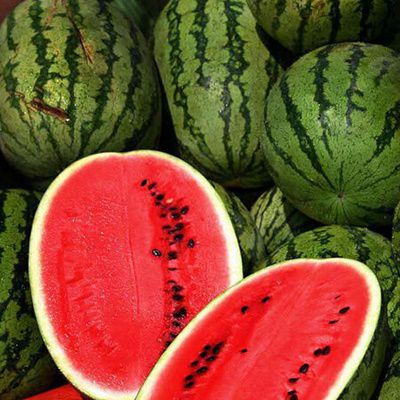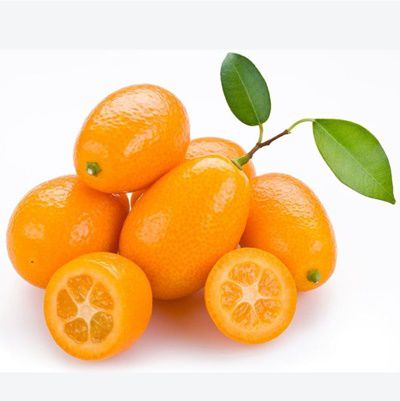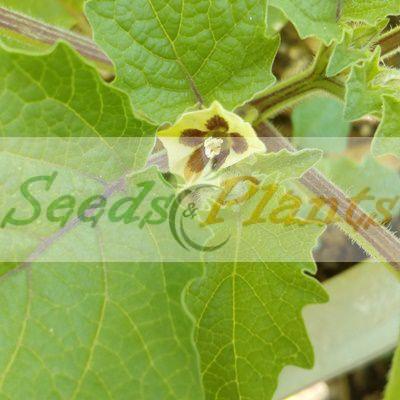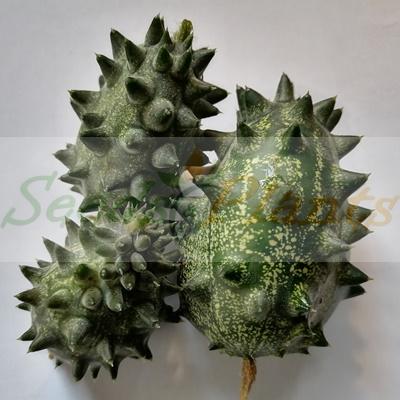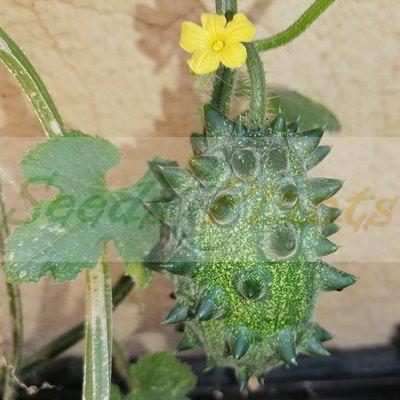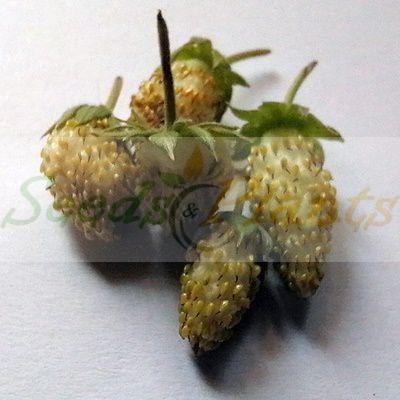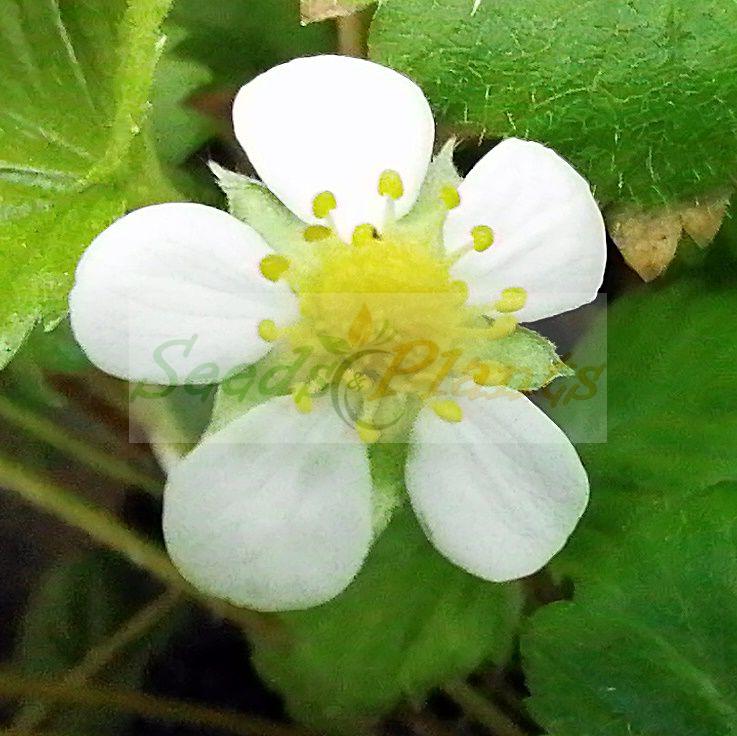🍒 Fruit Quick Facts
Fruit Info
- 🌍 Origin / Region: East Africa, Southern Africa, West Africa
- 🍽️ Culinary Use: Chutneys, Jams and Jellies, Juices and Syrups, Pies and tarts
- 🥗 Edible Part: Berry, Leaf
- 😋 Flavor Profile: Grape-like
Growth Traits
- 🌱 Life Cycle: Annual
- 🌾 Plant Type: Herbaceous plant
- 🔁 Fruiting Needs: Needs Only 1 Plant
- 🪴 Growth Habit: Bushy, Upright
- 🌸 Flower Color: White
- 📏 Mature Height: 60-120 cm
- 🦋 Pollinator Method: Attracts Bees, Attracts Butterflies, Self-pollinating
Growing Requirements
- 🌞 Sun Exposure: Full Sun
- 💧 Water Needs: Avoid Overwatering, Moderate Water
- ☀️ Growing Conditions: Drought Tolerant, Frost Sensitive, Heat Tolerant, Low Cold Tolerance
- 🟤 Soil Preference: Fertile, Rich Organic, Slightly acidic, Tolerant of most soils, Well-Drained
Garden Huckleberry – 50 Seeds
(Solanum melanocerasum)
R30.00
The berries can be cooked, sweetened and used on their own, or combined with other fruits such as apples, lemons and grapes, to make jellies, preserves, jams, chutneys and pies.
Seed Type: Organic – Harvested from our own plants.
Indoor Sowing: Late Winter / Early Spring.
Direct Sowing: Spring and Early Summer.
In stock
🍒 Fruit Quick Facts
Fruit Info
- 🌍 Origin / Region: East Africa, Southern Africa, West Africa
- 🍽️ Culinary Use: Chutneys, Jams and Jellies, Juices and Syrups, Pies and tarts
- 🥗 Edible Part: Berry, Leaf
- 😋 Flavor Profile: Grape-like
Growth Traits
- 🌱 Life Cycle: Annual
- 🌾 Plant Type: Herbaceous plant
- 🔁 Fruiting Needs: Needs Only 1 Plant
- 🪴 Growth Habit: Bushy, Upright
- 🌸 Flower Color: White
- 📏 Mature Height: 60-120 cm
- 🦋 Pollinator Method: Attracts Bees, Attracts Butterflies, Self-pollinating
Growing Requirements
- 🌞 Sun Exposure: Full Sun
- 💧 Water Needs: Avoid Overwatering, Moderate Water
- ☀️ Growing Conditions: Drought Tolerant, Frost Sensitive, Heat Tolerant, Low Cold Tolerance
- 🟤 Soil Preference: Fertile, Rich Organic, Slightly acidic, Tolerant of most soils, Well-Drained
Garden Huckleberry seeds. Garden Huckleberry (Solanum melanocerasum) is native to Africa and is a solanaceous berry in the tomato family. It is not a true huckleberry (which belongs to the Vaccinium or Gaylussacia genus) but an edible nightshade. The intense purple black hue of the berries indicates high levels of the antioxidant anthocyanin.
The plant is similar in appearance to a pepper plant, bushy and erect. Clusters of small white flowers are borne along the main stems, followed shortly by berries the size of a large blackcurrant – green when immature and black when mature. The berries are typically bland raw and should only be consumed after they are fully ripe (dull black, no longer shiny) and preferably cooked into jams or pies, as unripe green berries and leaves can be toxic.
Garden Huckleberry Culinary Uses
- Use as a substitute for other berries in recipes.
- Can be cooked, sweetened and used on their own, or combined with other fruits such as apples, lemons and grapes, to make jellies, preserves, jams, chutneys and pies.
- Garden huckleberries make an excellent syrup.
Growing Garden Huckleberry
Indoor Sowing: Late Winter / Early Spring.
Direct Sowing: Spring and Early Summer.
- Plant Garden Huckleberry Seeds in moist soil and cover with a thin layer of soil.
- Seeds should germinate within 2 weeks.
- Seedlings should receive at least five hours of sun every day.
- Once the seedlings grow about 5cm tall they can be transplanted to large pots or transplanted into the garden.
- Garden Huckleberries like compost rich soil and should be grown in full sun, but can also be grown in partial shade.
- The plants have some cold tolerance and fruit may continue to ripen after light frosts.
- Garden huckleberries can bear fruit in less than 90 days after sowing.
- Pick the berries about two weeks after they have turned black, when they are no longer shiny. Ripe berries are usually a dull black or blue-black and the flesh is very soft.
- Cook the fully ripe berries before eating.
Can this plant be used for culinary purposes?
Garden Huckleberry is traditionally used for culinary purposes such as chutneys and jams and jellies.
Disclaimer
Medicinal Information:
All medicinal information on this website is for educational and informational purposes only and may not be construed as medical advice. The information is not intended to replace medical advice or treatment offered by healthcare professionals.
Seeds, Plants, Plant Cuttings, Geophytes and Dried Herbs:
In some countries and provinces, certain plants are deemed as invasive and are not allowed to be planted at all, whilst some plants are allowed to be grown only in certain areas or provinces. The onus is on you as the buyer to familiarize yourself with the regulations pertaining to your location, before purchasing any of our seeds, plants, plant cuttings, geophytes or dried herbs. We will not be held liable, should you purchase any seeds, plants, plant cuttings, geophytes or dried herbs. from us which are prohibited in your country or province.

